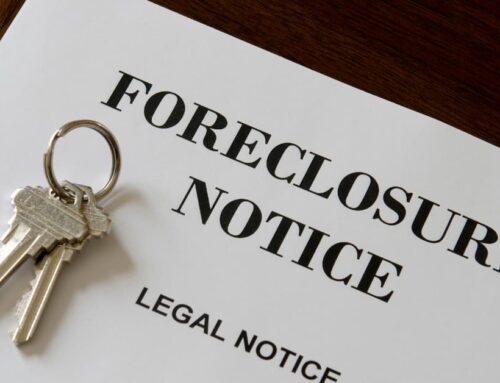The eviction of a commercial tenant is a delicate legal process that demands a nuanced understanding of the Texas Property Code. At Kelly Legal Group, we recognize the significance of comprehending the commercial eviction procedures. In this guide, we’ll provide an overview of the Texas Property Code, delineating its relevance to commercial tenant evictions.
👉Also Read: Understanding Property Line Encroachment Laws: Legal Rights for Property Owners
Understanding Commercial Tenant Evictions
Commercial tenant evictions refer to the legal process through which a landlord seeks to remove a tenant from a commercial property due to breaches of lease agreements or other specified reasons. These evictions involve specific procedures and considerations that distinguish them from residential evictions.
The Texas Property Code plays a pivotal role in governing commercial tenant evictions. It provides a framework for the legal procedures that landlords must follow and the rights afforded to tenants. Understanding the nuances of the Texas Property Code is crucial for both parties involved in the eviction process, ensuring compliance with the law.
Commercial landlord-tenant relationships are governed by a set of legal rights and responsibilities. Landlords have the right to enforce lease agreements and maintain the property, while tenants have the right to peaceful enjoyment of the premises. Responsibilities include timely payment of rent, property maintenance, and adherence to lease terms.
In the context of evictions, landlords must follow legally prescribed procedures, such as providing notice and allowing tenants an opportunity to remedy violations. Tenants, on the other hand, have the right to contest eviction proceedings and seek legal remedies if they believe their rights have been violated.
The Eviction Process in Texas
Initiating the Eviction Process in Texas involves a detailed series of steps, each governed by specific regulations. From issuing the eviction notice, a written mandate with strict timelines, to filing a lawsuit that incurs court costs and involves legal filings — every stage is meticulously detailed. The court proceedings, including the crucial court date, underscore the significance of legal representation for both parties.
Gaining possession of the property, symbolized by the Writ of Possession, is the final step, often requiring the intervention of the County Sheriff. This multifaceted process demands a nuanced understanding to navigate successfully within the bounds of Texas property law.
Commercial Lease Agreements
Commercial Lease Agreements play a pivotal role in the eviction landscape, serving as the foundation upon which legal actions are built. Their significance is profound, influencing the entire course of eviction proceedings. Understanding how specific lease terms impact the eviction process is crucial. The nuanced language in these agreements can significantly alter the trajectory of eviction actions, making it imperative for both landlords and tenants to be well-versed in their lease terms.
Tenant Non-Compliance
Addressing non-compliance issues, particularly concerning back rent and outstanding payments, is a central facet of the eviction process. This involves a careful examination of a tenant’s responsibilities during eviction, ensuring adherence to legal obligations. Navigating this terrain demands a comprehensive understanding of both tenant and landlord rights, reinforcing the importance of meticulous attention to lease terms and legal responsibilities.
Do Real Estate Lawyers Go to Court? Understanding the Role of Real Estate Attorneys in Commercial Eviction Proceedings
Real estate attorneys are indispensable in commercial eviction proceedings, playing a vital role in providing legal counsel for landlords and tenants. Their expertise becomes particularly crucial when it comes to interpreting and applying intricate legal frameworks surrounding commercial eviction laws, ensuring strict adherence to specific procedures and timelines crucial to the eviction process.
For landlords navigating the complexities of commercial eviction, real estate attorneys offer guidance on nuanced aspects, aiding in the avoidance of legal pitfalls and disputes. In the context of a commercial eviction lawsuit, these attorneys not only provide counsel but also play a pivotal role in crafting effective strategies aligned with the unique challenges posed by commercial leases.
The question often arises: do real estate lawyers go to court? In the realm of commercial eviction process, the answer is a resounding yes. On the tenant side, real estate attorneys are champions of tenant rights within the commercial space, offering robust representation in court. They go beyond offering advice; they actively explore legal defenses tailored to commercial tenancy and ensure meticulous adherence to due process.
👉Also Read: When Should I Hire a Real Estate Lawyer in Texas?
Navigating Commercial Eviction with Expert Guidance at Kelly Legal Group
At Kelly Legal Group, we stand ready to provide the legal support necessary for successful navigation through the intricacies of commercial eviction Texas. Our commitment is to guide clients through the eviction process, offering comprehensive legal counsel and representation tailored to the unique challenges posed by commercial tenancy.
If you are a business owner and find yourself grappling with commercial tenant evictions, trust us to guide you through every step of the process, ensuring compliance with the Texas Property Code. Schedule an appointment now with one of our experienced real estate law experts at Kelly Legal Group, and let us navigate the complexities on your behalf.






